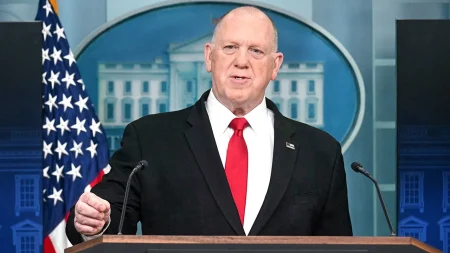Senator Roger Marshall, a Republican from Kansas and a former medical doctor, has announced plans to introduce legislation that would effectively ban gender-related medical procedures for minors. The proposed bill, named the Safeguarding the Overall Protection (STOP) of Minors Act, is aimed at prohibiting youth gender transition treatments and certain surgical procedures deemed as “castration.” Marshall intends to disallow the utilization of interstate commerce for performing, attempting, conspiring, or providing referrals for any surgical procedures that could result in gender mutilation of minors. He has characterized the current gender transition agenda promoted by some activists and medical practitioners as a form of “child abuse,” arguing that these measures pose a danger to minors and their well-being.
Marshall plans to formally introduce the STOP Act on Capitol Hill, reinforcing his commitment to combat what he views as harmful medical practices. He made a bold statement regarding the motivations behind these procedures, suggesting that some medical professionals may profit from what he describes as “mutilating, sterilizing, and castrating children.” The implications of this bill would be severe for professionals who violate its provisions, as it calls on the Department of Health and Human Services (HHS) to impose civil penalties of at least $100,000 on those offering transgender mutilation services to minors.
Additionally, the STOP Act is designed to support individuals who wish to detransition, or abandon their gender transition process. This aspect of the legislation underscores Marshall’s belief that there is a growing need for a safety net for those who seek to reverse the decisions made during their youth. Marshall has indicated he will collaborate with former President Donald Trump, who has voiced intentions to limit gender-affirming care for minors, suggesting a broader alignment within the Republican Party on this topic. The senator emphasized that the proposed legislation would prioritize children’s safety by explicitly prohibiting any and all attempts to administer irreversible therapies to minors.
The focus of the STOP Act falls within a broader Republican movement aimed at addressing what they perceive to be the dangers of transgender medical procedures available to minors. This sentiment has echoed throughout various discussions, including a recent panel led by Terry Schilling from the American Principles Project, which gathered lawmakers to strategize on legislation concerning transgender issues. Marshall and other GOP lawmakers have positioned their proposals in opposition to practices such as hormone replacement therapy and medical treatments that include laser hair removal, which they argue are inappropriate for minors.
In contrast to the Republican efforts, numerous lawmakers on the other side of the aisle have vocally supported the availability of gender-affirming care for minors, including hormone treatments and puberty blockers. Recently, there has been significant opposition to a ban in Tennessee that restricts access to puberty blockers for minors. A group of 164 lawmakers, consisting of 11 senators and 153 representatives, filed an amicus brief in defense of transgender youth against this legislative ban, highlighting the division and debate within Congress regarding how to address the needs of this population.
As discussions surrounding the STOP Act and similar legislation unfold, legal challenges are also anticipated. The Supreme Court is expected to review arguments regarding Tennessee’s restrictions on transgender procedures for minors, and this could set a precedent for future regulations on such matters across the United States. Public opinion remains divided on the issue, with many advocating for medical professionals and parents to have the discretion to determine the best courses of action for the health and well-being of transgender youth, underscoring the complexity and emotional weight surrounding this contentious topic. The landscape concerning gender-related medical treatments for minors is evolving rapidly amid a backdrop of legislative maneuvering and judicial scrutiny, reflecting broader cultural and political debates within the country.















